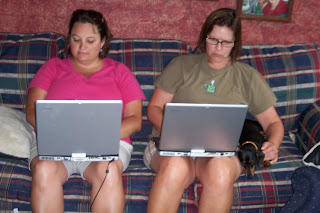
In French, we went to Sugar Rush for fun, food, and fellowship. We enjoyed smoothies, lattes, eclairs, cookies, and brownies. C'etait tres bon!
College Senior English
Mrs. Cauley urged students to get involved with our tutorial program after school. We need students to mentor and guide the younger ones, especially in math and English. I presented a lesson on persuasive techniques, covering logical, ethical, and emotional appeals and rebuttals. We read a sample essay in class and "dissected" it. I have a handout to give them tomorrow that will cover methods of persuasion and fallacies of logic.
I shared our wikispaces address, and students began developing their pages.
English 12
We continued our study of poems.
Thomas Gray: "Elegy Written in a Country Churchyard"
Memorable lines: "The paths of glory lead but to the grave" and "Far from the madding crowd's ignoble stife"
Robert Burns: "Auld Lang Syne," which means "old long ago"
William Shakespeare: Sonnets 116, 130, and 73
I love the line, "Bare ruin'd choirs, where late the sweet birds sang."
John Donne: "Death, Be Not Proud" and "Meditation 17"
Donne is one of my very avorite poets.
Memorable lines from "Meditation 17" include "No man is an island" and the famous passage: "Any man's death diminishes me, because I am involved in mankind, and therefore never send to know for whom the bell toll; it tolls for thee."
These lines remind me of the African word "ubuntu" that my former student Johnny Croft told me about. Ubuntu basically means that a person is a person through other people. Johnny is living in Malawi for two years, serving in the Peace Corps.



